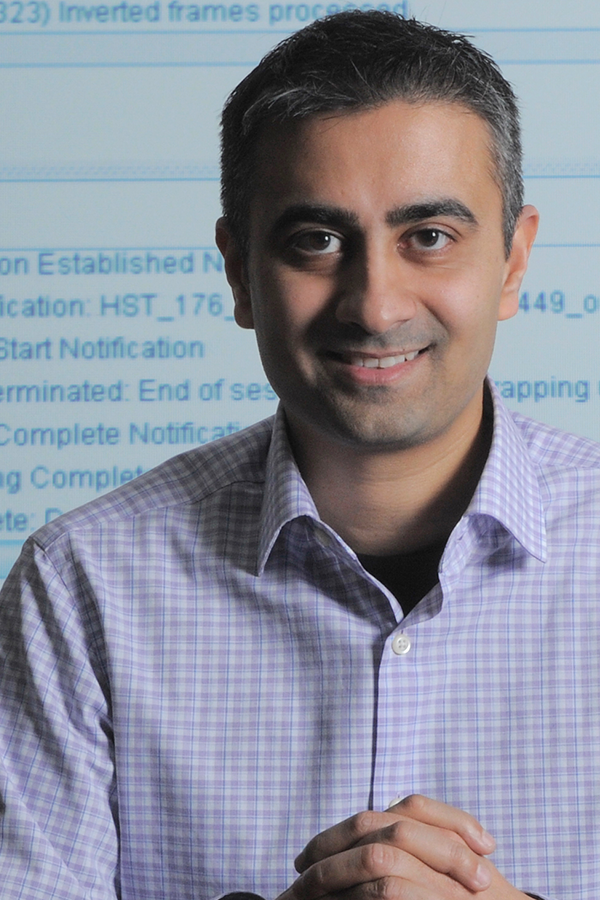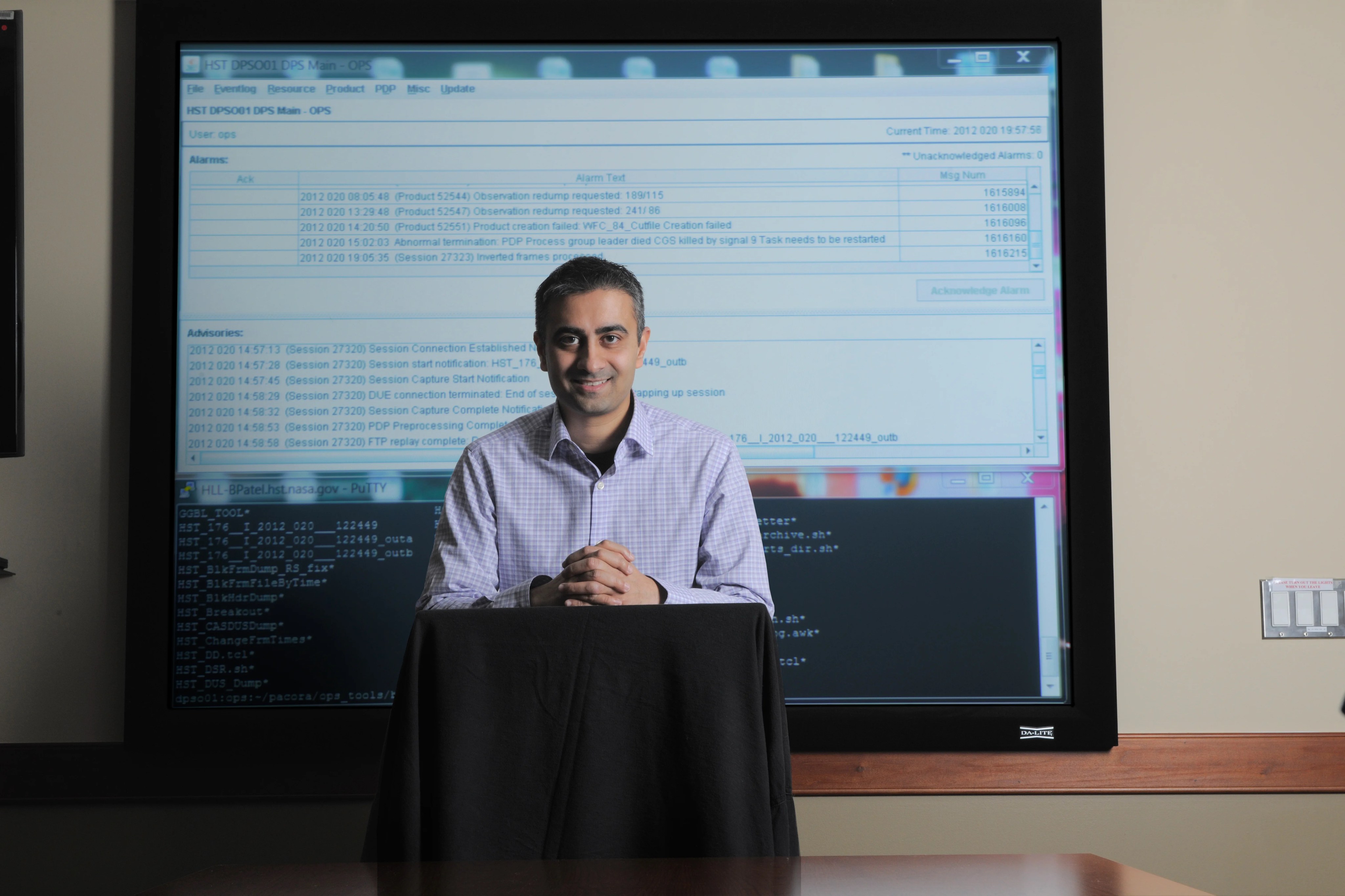
Bijal Patel
Mission Engineer
Hubble images and information stream back to Earth in the form of data. The data travels a pinball-like route, beaming from Hubble to a satellite, then from the satellite to what’s called a ground station at White Sands, New Mexico. From there, the data is sent to Goddard Space Flight Center in Greenbelt, Maryland.
That’s a lot of traveling, and data can be damaged, go missing, or end up out of order in the process. When that happens, Bijal Patel jumps in. Bijal tracks down the root of the problem, repairs the corrupted data, and then sends it on to its next destination, the Space Telescope Science Institute in Baltimore, where astronomers are eagerly awaiting the results of Hubble observations.
“With Hubble we strive to recover 100 percent of the data. We don’t lose a single packet,” he said.
Bijal examines the data and identifies the time frames where data is damaged or where gaps occur. “When we do our check, internally we can determine where those gaps are up to a millisecond,” he said. He then takes that timeframe and gets replacement data from where it’s been previously saved, either at the White Sands Ground Station or on Hubble’s own recorder.
Bijal and his team uses software to unite the original data with the backup data. “We’re not actually going into the data and piecing it together. We’re just going into the system and telling it to combine this and this, and it does its own check to see that there are no issues with it.”
An exception is when data gets duplicated, he added, and they have to cut the extra data out. “In that case we’re going into the file and separating files out and processing and putting them back together.”
Hubble data flows to Earth day and night, and the importance of that data means this is not a 9-5 job. Data saved on Hubble’s recorder can be overwritten as new observations come into the telescope, so there’s a time limit on the stored data’s lifespan. “So even if I’m alerted in the middle of the night, I have to get up to look at the data, repair it, and get it delivered,” Bijal said. “I know how valuable those images are to the scientists.”
Growing up in Annapolis, Maryland, Bijal Patel became interested in computers early due to a love of science fiction television shows and movies, and the impact of his older brother, Ajay. “He was a big influence — he’s 10 years older than I am. He was a computer science major, and I remember him playing on his computers, doing programming. I wanted to follow after him and imitate a lot of the things that he was doing.”
His brother went on to a career in business, but Bijal stayed with computers, first trying out computer science and then focusing on information technology. “It was more diverse than programming,” he said. “Computer science is mainly programming, and information technology has programming, data processing, databases — more variety.”
After graduating from the University of Maryland, Baltimore County, with a bachelor’s degree in management information systems, Bijal began working in spacecraft operations at Goddard Space Flight Center. Initially, he worked in a group that tended to four satellites, including Hubble. In 1998 he joined the Hubble team and, over time, became head of the Hubble data processing team.
But his career journey wasn’t over. Several years ago, Hubble management decided to combine the data processing and flight operations teams. So Bijal took the opportunity to learn how to operate the Hubble spacecraft itself, and he is now also a flight operations shift supervisor. “They liked having my knowledge on the data processing and having me do flight ops, so I kind of got into both things,” he said. In turn, he taught the other flight operations team members how to process data.
“I was nervous and scared at first since it was so different — now I’m in charge of Hubble too, of its safety. As time goes on and you learn it and get better at it I found I really enjoyed it. I feel this sense of pride being part of the project and team members.”
Lost in the day-to-day work, you don’t really think about how important it is to ensure that Hubble is functioning and its data arrives intact, he said. “It’s funny — you don’t think of it as a big deal when you’re doing it, but when people talk about it or when you see the documentaries on TV you realize what you’re doing and how important it is, and you get that feeling that you accomplished something amazing.”
Bijal continues to take chances to learn, working when he can with this critical side of Hubble. “There’s this whole other world behind Hubble — the networking and routers and how the data flows. I’ve always wanted to broaden my horizons and try new things.”
Outside of Goddard, Bijal spends his time with his wife, daughter and son. He enjoys sharing information about Hubble with kids. “Long after the Hubble is gone, I want to make kids aware of it — that’s going to be my passion,” he said. “That’s another thing I feel a great sense of pride in doing — something special and being part of children’s lives.”

